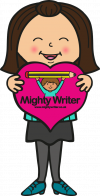Exploring Different Genres: Ideas for Teaching Fiction and Non-Fiction Writing in KS1
The Importance of Teaching Fiction and Non-Fiction Writing
Before we dive into specific strategies, let's take a moment to appreciate the value of teaching both fiction and non-fiction writing to young learners.
By exposing pupils to various genres, you nurture their creativity, critical thinking skills, and ability to communicate effectively.
From sparking creativity to boosting critical thinking, we'll explore the fantastic world of writing for these young learners. So, let's dive in!
Engaging Strategies for Teaching Fiction Writing
1. Story Starters: Begin each writing session with a thought-provoking story starter to ignite your pupils' imaginations. Encourage them to develop their own characters, settings, and plotlines, fostering their storytelling abilities. If you would like some story-starter ideas, head to our blog!
2. Role-Playing: Create a dramatic experience by assigning roles to your pupils and encouraging them to act out their stories. This interactive approach enhances their understanding of character development and plot structure.
This also provides possibility for the children to create character descriptions, scene descriptions and story writing, all in one exercise. 
3. Visual Prompts: Utilise engaging visuals, such as pictures or videos, to inspire your pupils' writing. Encourage them to observe details, incorporate descriptive language, and build a narrative around the visuals. If you would like more information on how to use visual prompts in your class, check out our free lesson plan!
4. Group Collaboration: Foster teamwork and peer learning by assigning small groups to collectively write a story. This collaborative exercise allows pupils to develop their social skills while honing their writing abilities. 
Effective Strategies for Teaching Non-Fiction Writing
1. Real-Life Experiences: Encourage pupils to write about their personal experiences, such as field trips or family events. This helps them connect writing to their own lives, making it more meaningful and relatable.
2. Research Projects: Introduce research skills by assigning topics of interest to your pupils. Teach them how to gather information from various sources, take notes, and organise their findings into a non-fiction piece.
3. Informational Guides: Challenge pupils to create their own how-to guides or informational brochures on subjects they are knowledgeable about. This allows them to practice organising information and presenting it in a user-friendly format.
Additional Tips for Effective KS1 Teaching
1. Utilise Technology: Leverage technology tools and apps to engage pupils and enhance their writing experience. There are various online platforms that offer interactive writing activities, prompts, and feedback. 
2. Celebrate Achievements: Recognise and celebrate pupils' writing accomplishments to boost their motivation and self-esteem. Display their work in the classroom or create a class anthology to showcase their progress.
3. Continuous Professional Development: Stay updated on the latest teaching techniques and trends by actively participating in professional development workshops, conferences, and online teaching communities. This will provide you with fresh ideas and support from fellow educators.
4. Effective Classroom Management: Implement strategies to manage disruptive behaviour, such as clear expectations, positive reinforcement, and engaging activities. A well-managed classroom creates a conducive environment for focused writing.
By implementing these strategies and staying connected with educational resources, you can make a lasting impact on your pupils' writing skills.
How can Mighty Writer Help?
Mighty Writer is a tactile resource, with picture prompts to assist children in forming sentences across a range of genres, including fiction and non-fiction.
If you are interested in Mighty Writer, but would like to learn more, download our free Mighty Writer guide today.
In this guide, you'll find out:
- What Mighty Writer does
- How sentences are composed with Mighty Writer
- Progression in the use of Mighty Writer
- How to incorporate Mighty Writer into the day
- & much more!

